I like to listen to the way people talk in the wild.
On the street.
In bars.
At the bodega.
How people talk when they’re not performing.
People who haven’t had media training.
People who haven’t learned the art of saying nothing in a way that makes it sound like they said something.
 Job site in DUMBO.
Job site in DUMBO.
A few weeks ago, I was walking past a job site, and I heard this one guy say hi to another guy.
How’s it going?
I love listening to how people answer this question, because I never seem to be able to answer it honestly myself.
In a way that’s not automatic.
That’s not thoughtless.
So, the other guy answers – with a good natured smile – just another day in paradise.
What an answer, I thought.
I tried it out the next time a friend asked me how I was doing.
She’s an optimist, and thought it was a totally cynical response.
It could be – or it could be something more.
When you say it with a good natured smile, it’s something more.
It’s all about subtext.
I’m stealing it.
⥂ ❧ ⇲
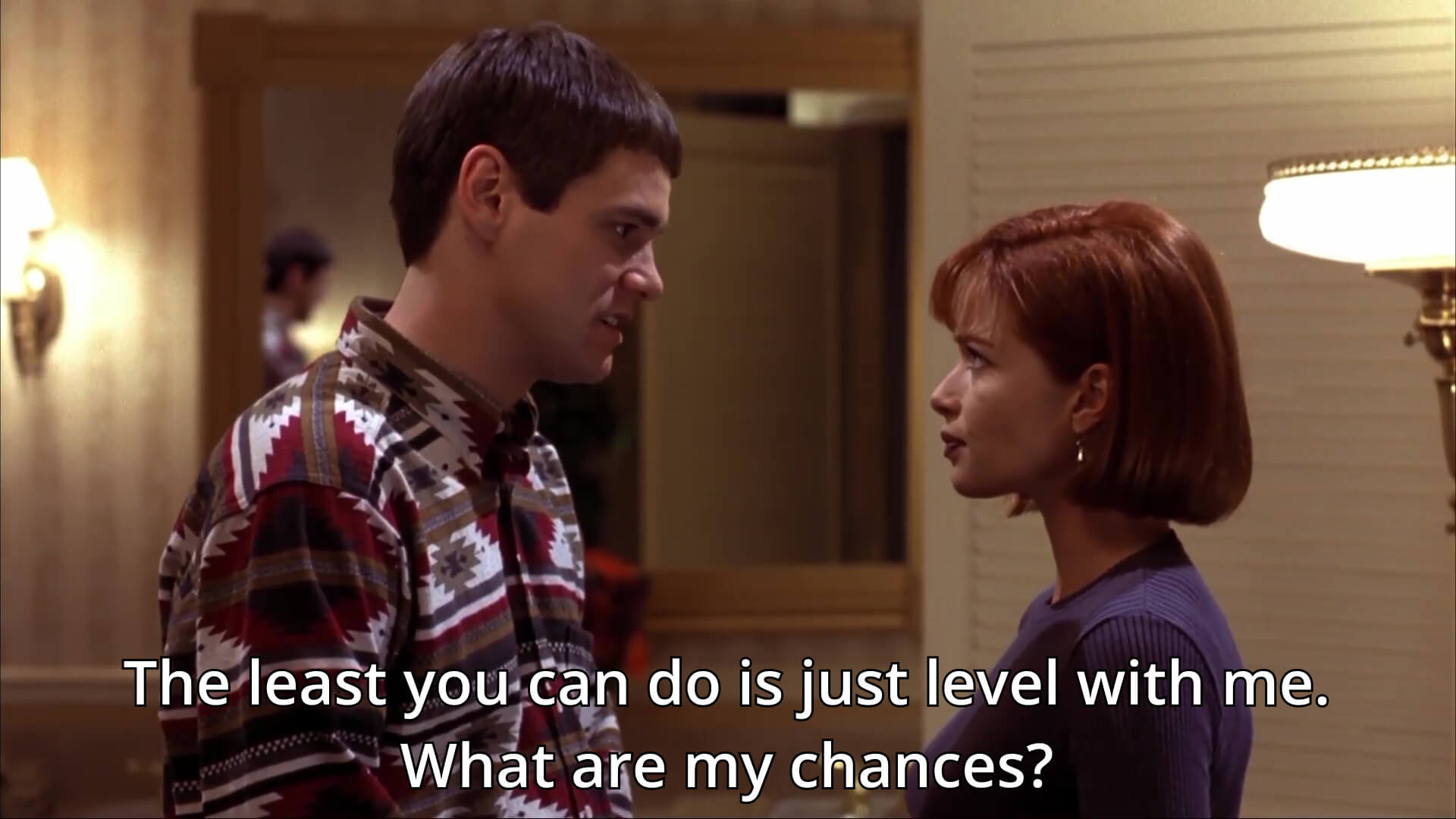 Dumb and Dumber (1994).
Dumb and Dumber (1994).
Sometime in 2021 or 2022, I started hearing this phrase “pragmatic optimism” – and it bothered me – this phrase.
I wrote this thing today because I wanted to figure out why.
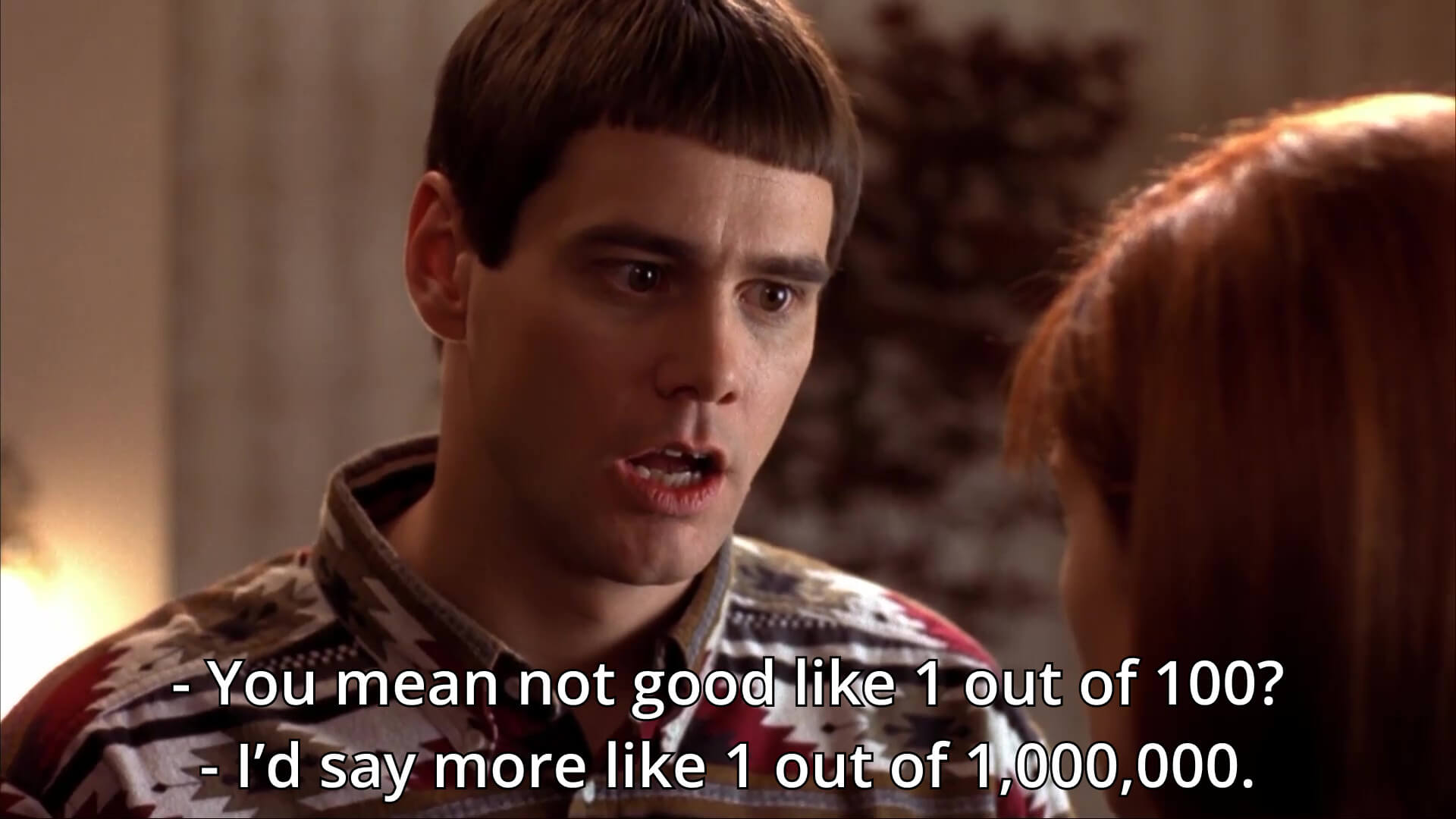 Dumb and Dumber (1994).
Dumb and Dumber (1994).
I imagined going to a psychiatrist and saying:
I’ve been hearing more and more people talk about pragmatic optimism and it’s bothering me.
Ok, imagine you are hearing someone say this phrase right now. Do you feel a reaction somewhere in your body? Is it in your stomach? Or your chest? Your head? Somewhere else?
It’s in my chest.
What does it feel like?
It’s tight.
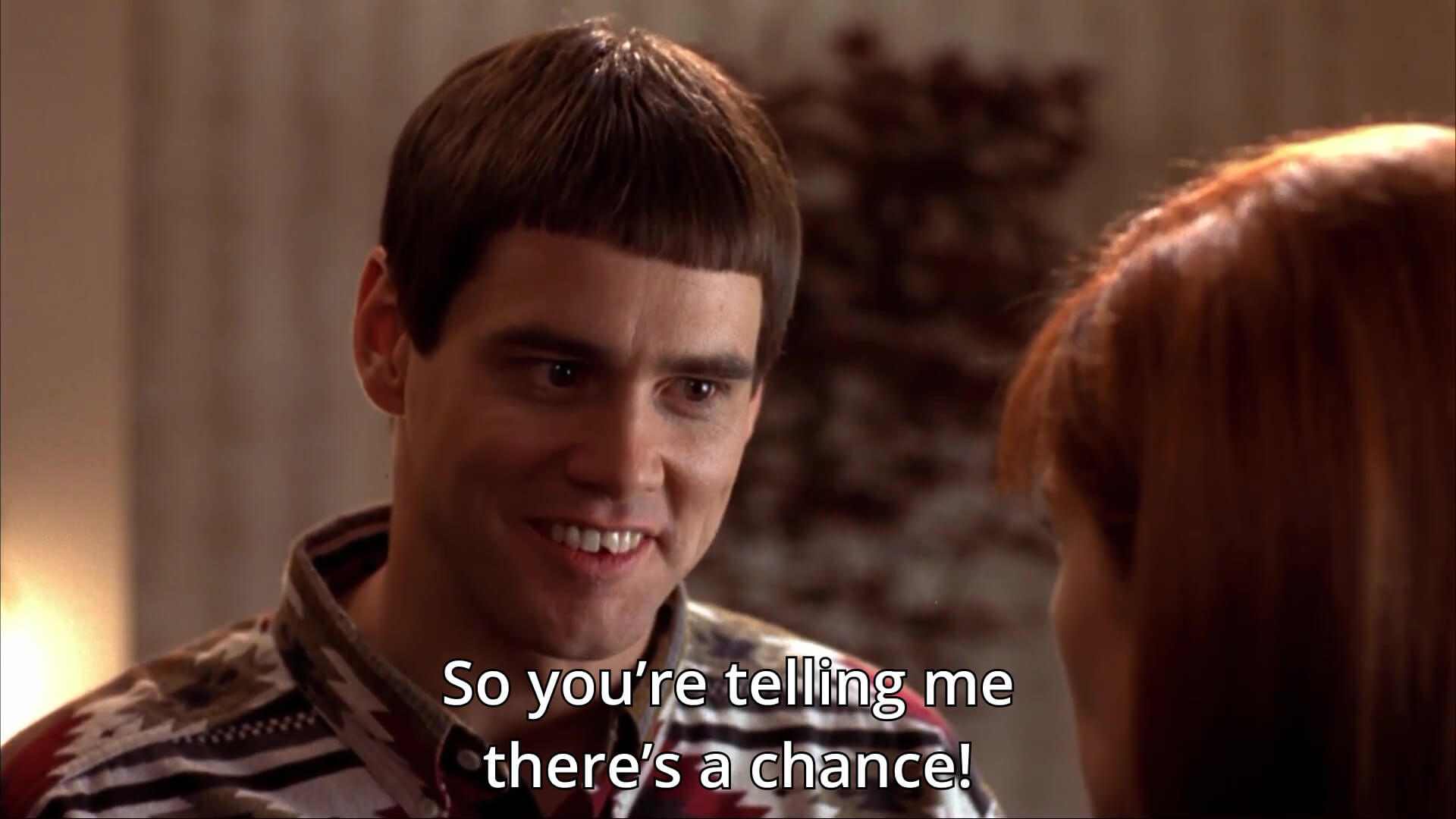 Dumb and Dumber (1994).
Dumb and Dumber (1994).
It sounds like they’re saying, I’m an optimist – but don’t worry, I’m not an idiot – I’m a pragmatic optimist.
QED.
All you need to do to make optimism ok – socially acceptable in intelligent crows – is stick a “pragmatic” in front!
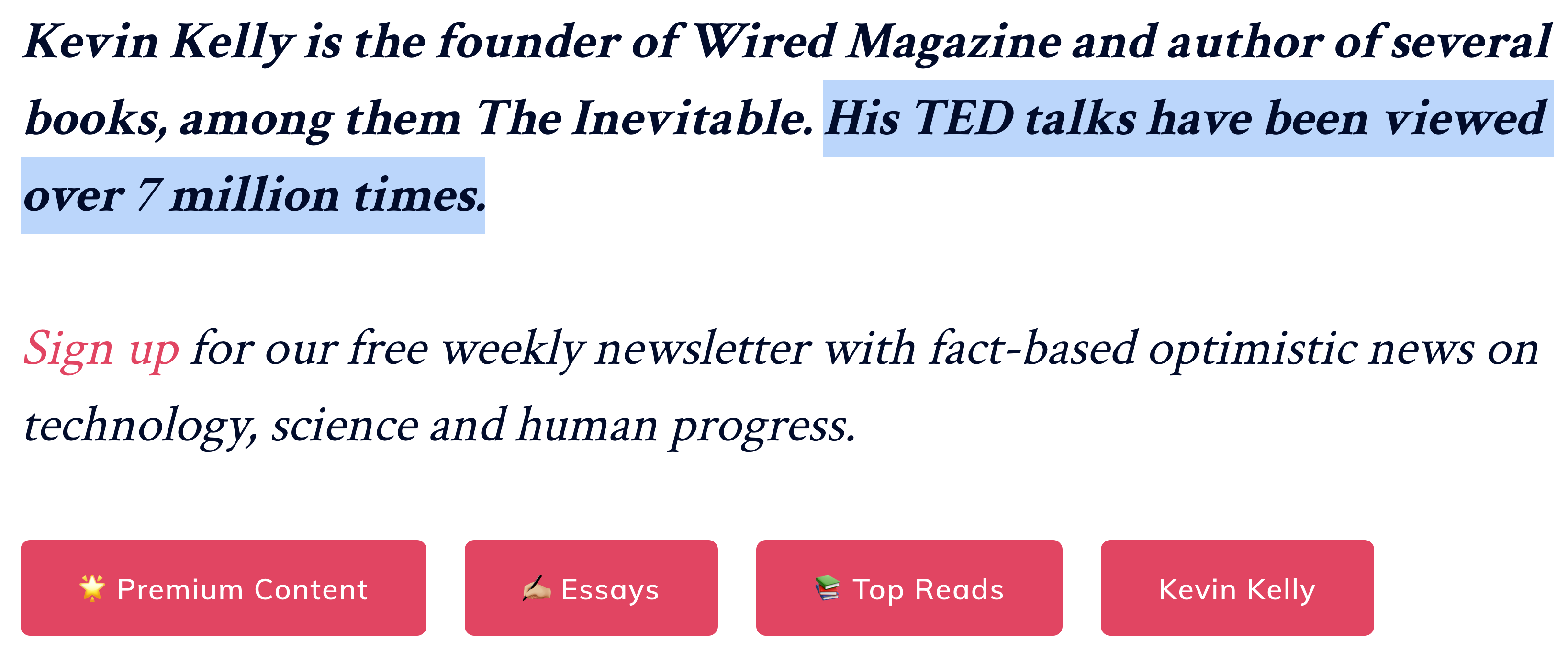 via warpnews.org
via warpnews.org
It’s too simple.
It could be a Ted Talk.
Maybe that’s my problem with it.
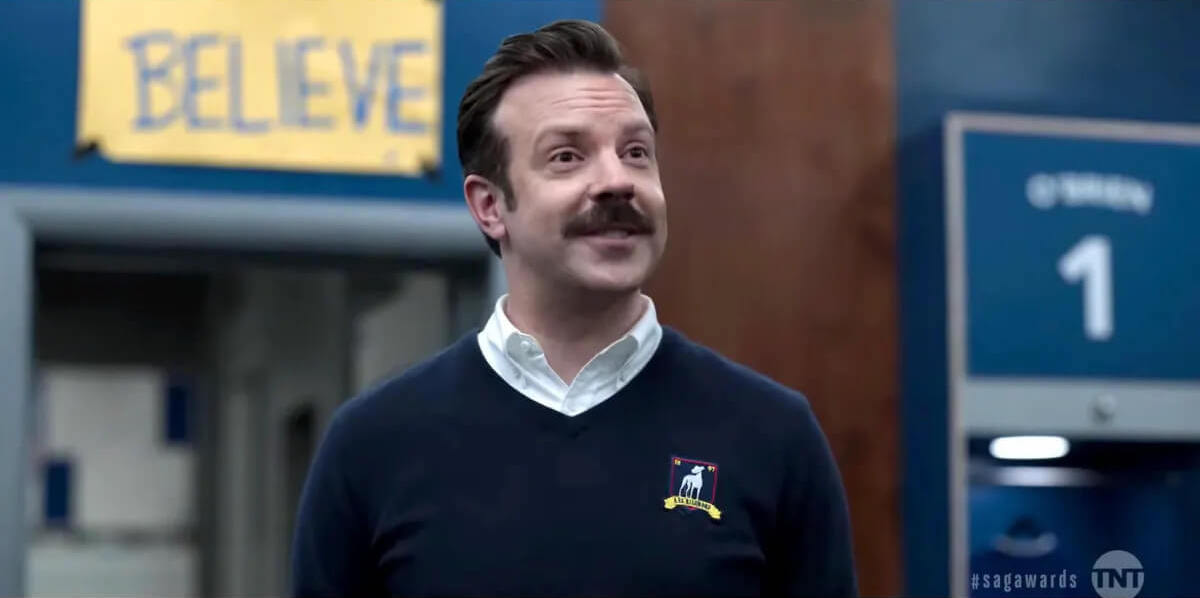 Ted Lasso (2020).
Ted Lasso (2020).
The pandemic was tough.
There’s a reason Ted Lasso was a hit.
We all wanted – we all needed – to feel something other than despair and loneliness and depression and pessimism.
I get that.
We want a reason not to give up hope.
We want a reason to keep trying.
Optimism… with a PLAN!
We want a plan.
Initially, I thought this was what the pragmatic was about.
Optimism, but with a plan.
X + Y = Z
We’re not just saying to hope for the best.
We’re laying out a set of concrete steps for how we’re going to get there.
We do X, we do Y, and we get Z.
A plan is actionable.
It mobilizes people.
Gives them the opportunity for agency.
 Obama campaign poster by Shepard Fairey.
Obama campaign poster by Shepard Fairey.
Hope is passive.
It’s appropriate for things outside the scope of our agency.
You might hope it doesn’t rain tomorrow.
You might hope you don’t have a genetic predisposition for a disease.
But you don’t hope you are going to get your work done.
You don’t hope your way out of climate catastrophe.
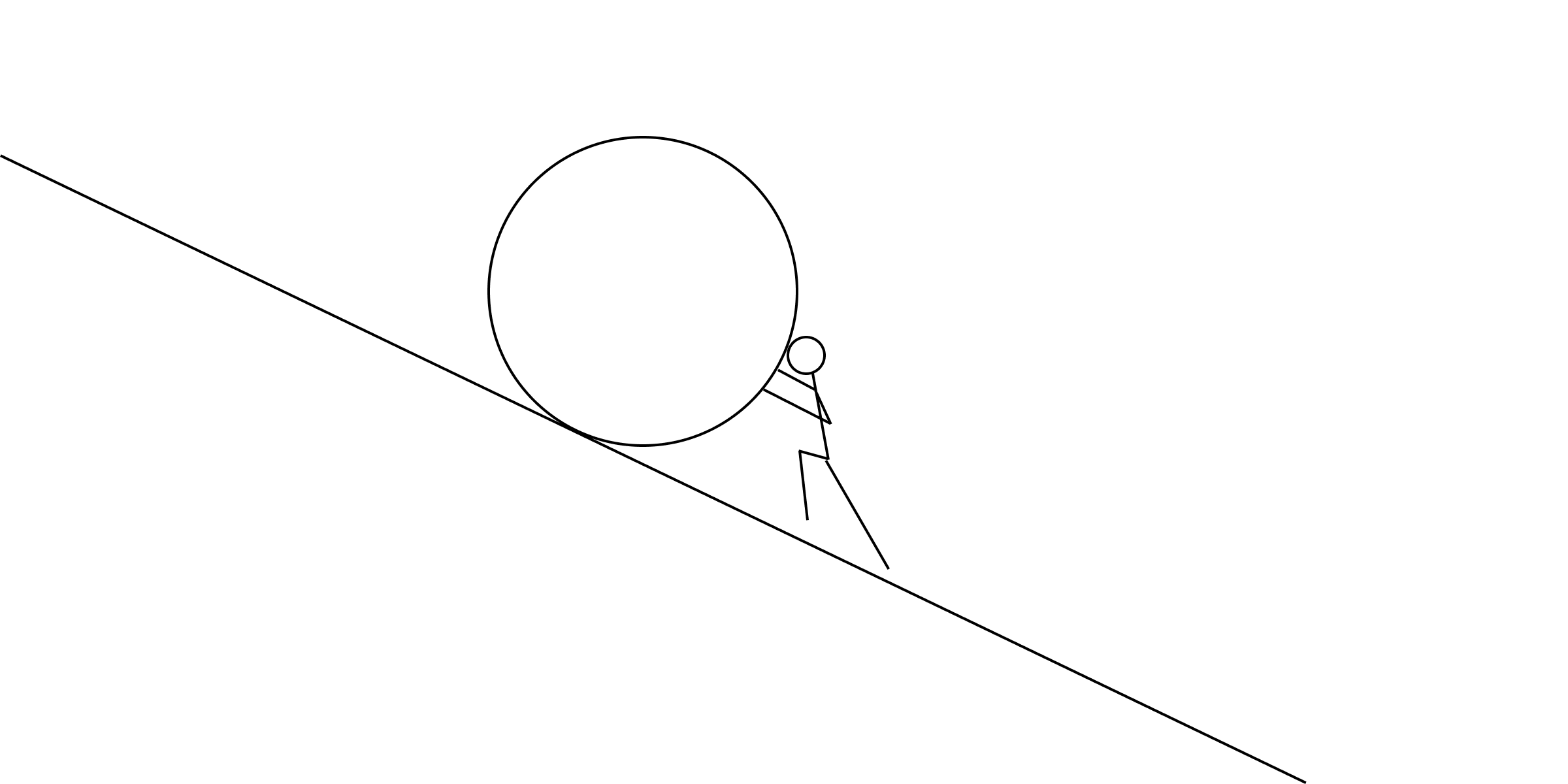 Sisyphus teaches the higher fidelity that negates the gods and raises rocks. He too concludes that all is well. This universe henceforth without a master seems to him neither sterile nor futile. Each atom of that stone, each mineral flake of that night filled mountain, in itself forms a world. The struggle itself toward the heights is enough to fill a man’s heart. One must imagine Sisyphus happy. – Albert Camus.
Sisyphus teaches the higher fidelity that negates the gods and raises rocks. He too concludes that all is well. This universe henceforth without a master seems to him neither sterile nor futile. Each atom of that stone, each mineral flake of that night filled mountain, in itself forms a world. The struggle itself toward the heights is enough to fill a man’s heart. One must imagine Sisyphus happy. – Albert Camus.
So, I guess at least you gotta give credit to the pragmatic optimists for having some respect for hard work.
They’re people who believe things will get better if we have a good plan and put in the hard work necessary.
People who know there’s no free lunch.
And yet…
And yet, something gnaws at me still, doesn’t quite sit right.
optimism (noun) /ˈɑptəˌmɪzəm/
Call me old fashioned, but I still like dictionaries.
I like to learn about the etymologies of words.
How they’ve been used throughout history.
Here’s what the OED has to say about optimism:
optimism (noun) /ˈɑptəˌmɪzəm/
- The doctrine propounded by Leibniz (1710) that the actual world is the best of all possible worlds….
The doctrine propounded by Leibniz (1710) that the actual world is the best of all possible worlds….
I almost certainly think about this definition more often than most people.
My college had this program – The Penn Reading Project – where they ask everyone in the incoming freshman class to read the same book the summer before they arrive on campus.
My class was assigned Voltaire’s Candide, a tragic satire of a young man whose faith that we live in “the best of all possible worlds” remained unwavering, despite his relentless bombardment with tragedy and horror – he meets person and after person suffering from earthquakes and disease and rape and slavery and cannibalism and just about every manner of injustice you can imagine.
I can’t help thinking of Candide people encourage me to be an optimist.
optimism (noun) /ˈɑptəˌmɪzəm/
- The doctrine propounded by Leibniz (1710) that the actual world is the best of all possible worlds.
Hopefulness and confidence about the future or the successful outcome of something; a tendency to take a favorable or hopeful view.
Here’s another one from the OED:
Hopefulness and confidence about the future or the successful outcome of something; a tendency to take a favorable or hopeful view.
a feeling that good things WILL happen and that something WILL be successful
And one from the Oxford Learner’s Dictionary:
a feeling that good things WILL happen and that something WILL be successful
Note: it’s not the feeling that success is more likely when you have a solid plan.
It’s the feeling that success WILL happen.

It just rings a little tone deaf to me in light of the challenges I look ahead and see.
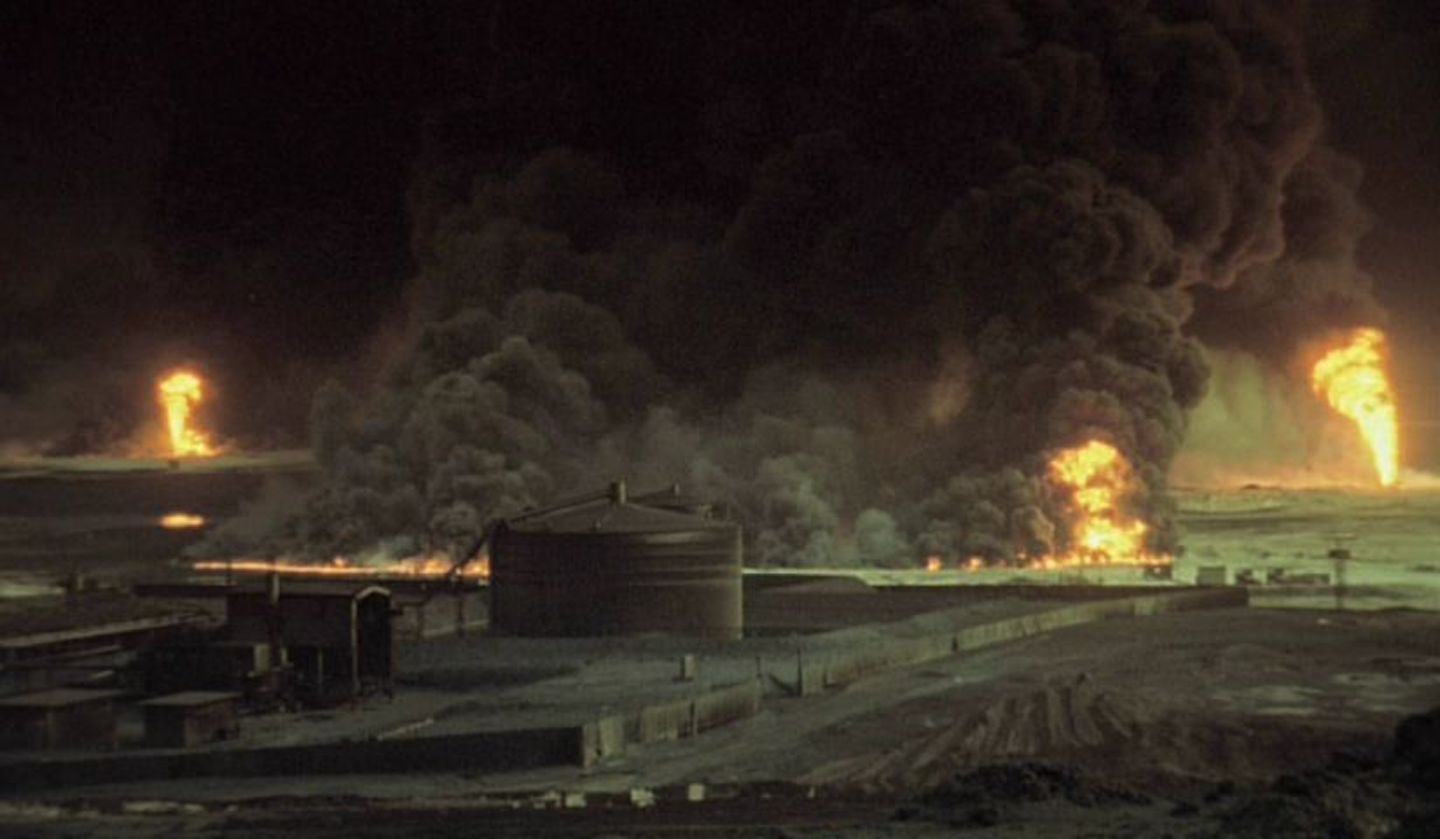 Lessons of Darkness (1992).
Lessons of Darkness (1992).
JUST Semantics
A few weeks ago, a friend asked me what I planned to talk about today.
I explained my problem with pragmatic optimism, and he said, sure, but isn’t that just semantics?
(He’s a self-proclaimed optimist, but to his credit, he quickly walked back from success WILL happen to success is MORE LIKELY as we got into it.)
optimism (noun) /ˈɑptəˌmɪzəm/
Sure, I’m throwing around OED definitions and nitpicking WILL versus COULD happen.
But I don’t think it’s JUST semantics we’re talking about.
 Mural on Bartlett St. San Francisco, CA.
Mural on Bartlett St. San Francisco, CA.
Every once in a while, when I’m talking to someone about optimism, I catch a hint of something in the corner of their eye.
Something a little frantic.
A slight crack in their voice, maybe.
Not the kind of thing you see when you’re talking just semantics.
What is it?
Did I imagine it?
Was it really there?
Was it doubt? Uncertainty?
Fear, I think.
The kind of fear you try to guard against with hope, with optimism.
Contrasted with pessimism n. 3.
In the dictionary, under optimism, you’ll usually see something like:
Contrasted with pessimism n. 3.
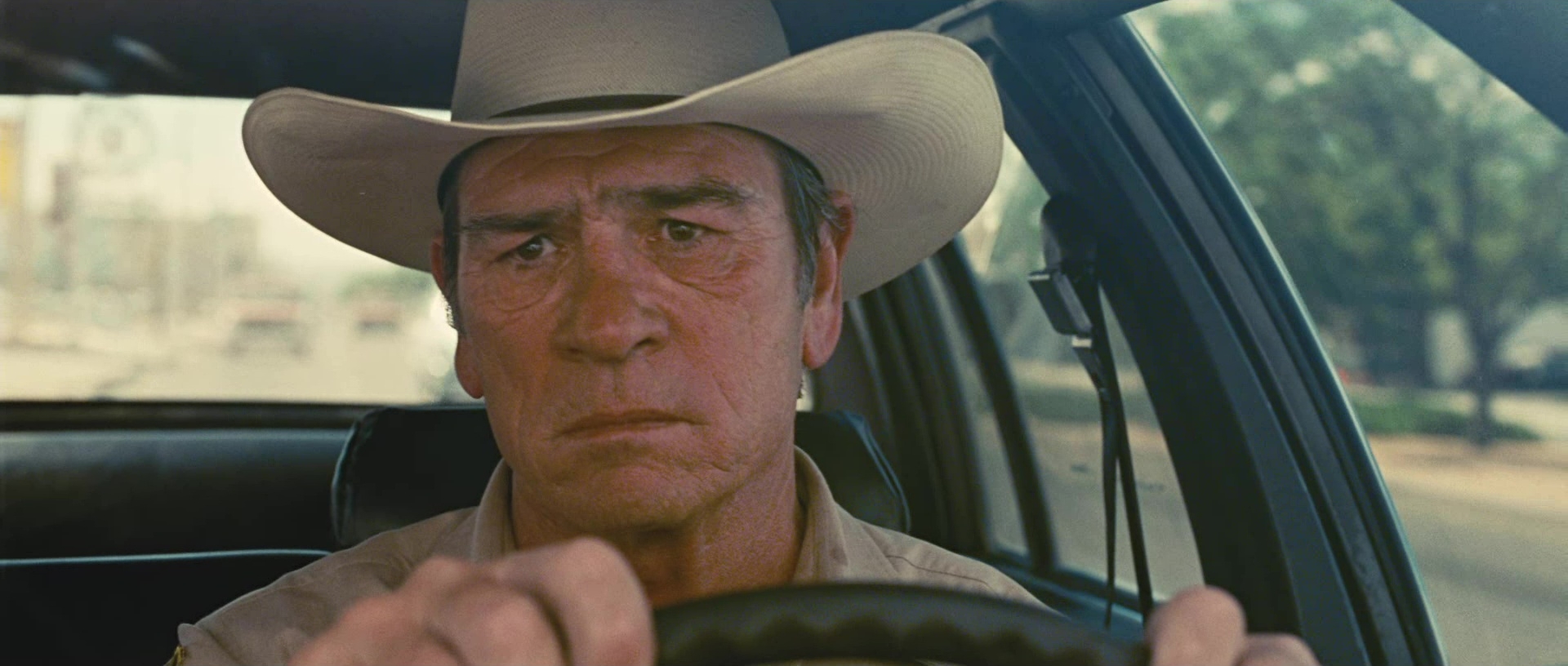 No Country for Old Men (2007).
No Country for Old Men (2007).
But out in the wild, it’s not pessimism we’re bolstering against.
It’s not pessimism we fear.
No.
I know that fear that I caught a glimmer of in that eye.
It’s the fear of despair.
The fear of nihilism.
This is why the stakes are so high.
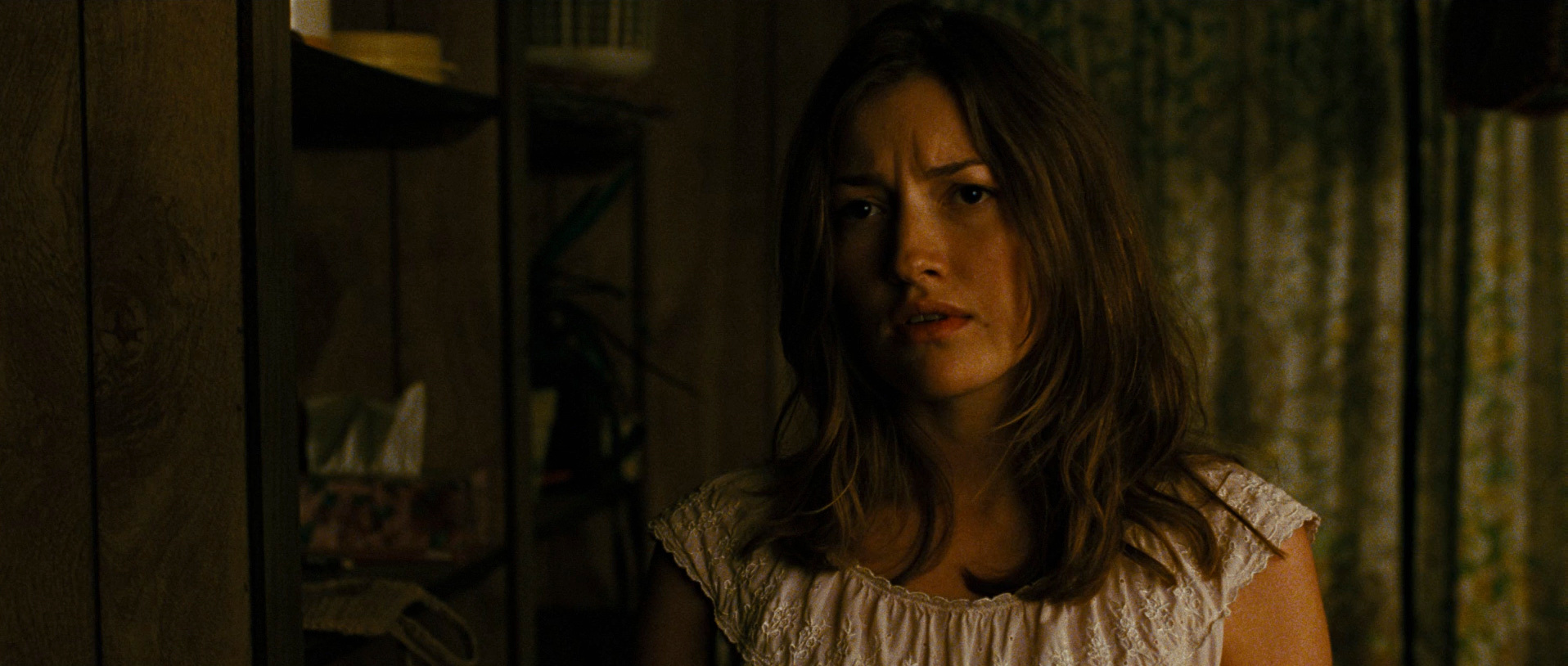 No Country for Old Men (2007).
No Country for Old Men (2007).
And it gives me more compassion for the optimists.
It’s why I care enough to talk about this.
Nihilism is scary.
It’s terrifying if you really think about it.
And you want there to be a reason to reject nihilism.
You want a rational explanation.
You want a justification.
You want logical proof for why you should reject nihilism, believe in something, believe in anything.
And when you get worried that optimism feels a little too close to blind faith, you throw pragmatic in front, maybe convince yourself you’re back on firm ground, and call it a day.
pragmatic optimism != !nihilism
But there is no firm ground to stand on.
There is no justification for optimism.
And there is no rock solid argument against nihilism.
The more I think about it, the more I think this is what the pragmatic is about.
It’s for when you realize there’s no justification.
But you think maybe it’s pragmatic to be an optimist because it might lead to better results.
And it’s better than despair.
not HOW but WHY
So it’s actually not really about whether or not you have a plan.
It’s not HOW you’re an optimist.
It’s the reason WHY you’re an optimist.
It positions itself as a justification for not submitting to nihilism.
It’s motivation.
It’s a pep talk.
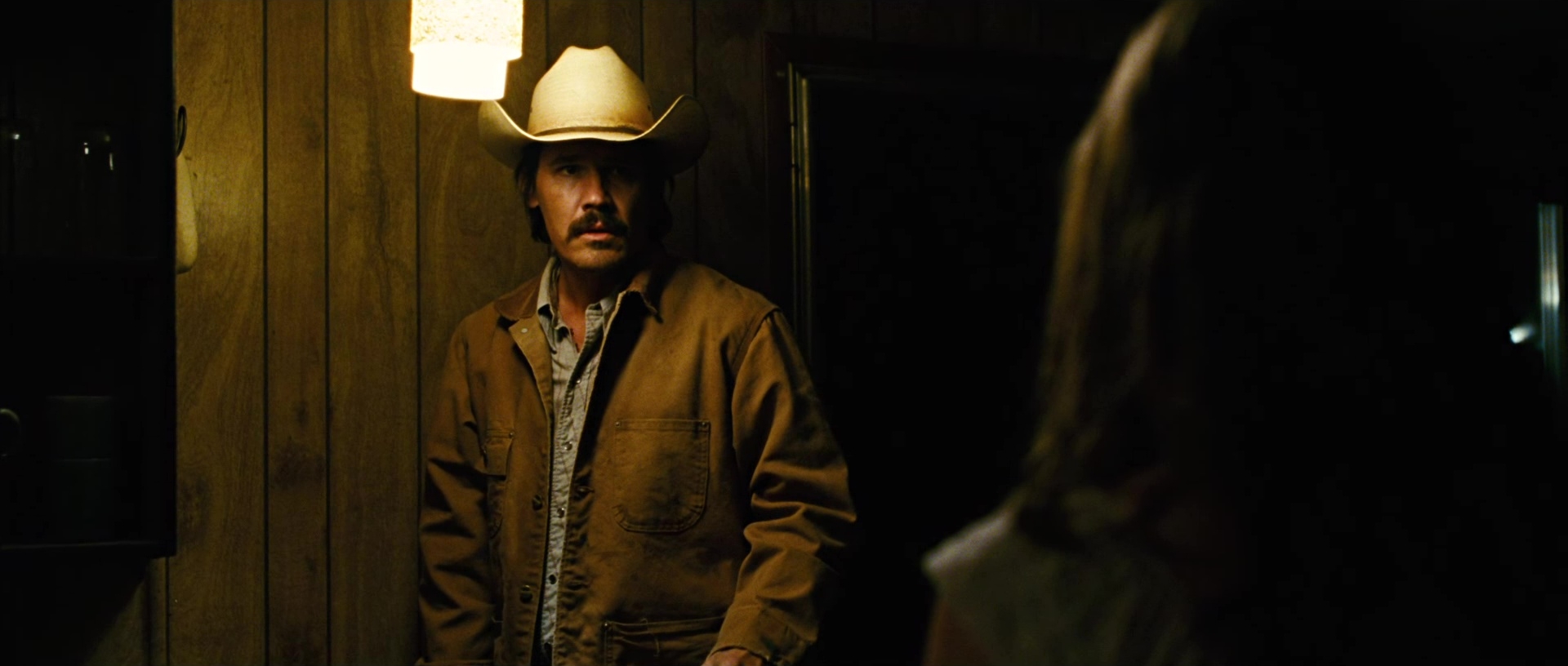 No Country for Old Men (2007).
No Country for Old Men (2007).
The real fun starts when you start thinking about how you talk about this to other people.
How’s it going?
Just another day in paradise.
Do you put on an optimistic face for your kids, employees, or spouse even when you feel internally pessimistic?
In November of 2022, I got invited to one of those dinners where there’s a set topic and some background reading and a set of questions for everyone to think about before hand.
“The Perils of Pessimism” was the name of this event.
And one of the questions was this:
Do you put on an optimistic face for your kids, employees, or spouse even when you feel internally pessimistic?
You can imagine the type of crowd at this type of dinner.
The type of people that went to the type of school that you’re going to.
They went twenty, thirty years ago, and now, they’re the type of people now running things.
Leader types.
And – over dinner – it’s the softball framing of the question they’re discussing – if you ask me.
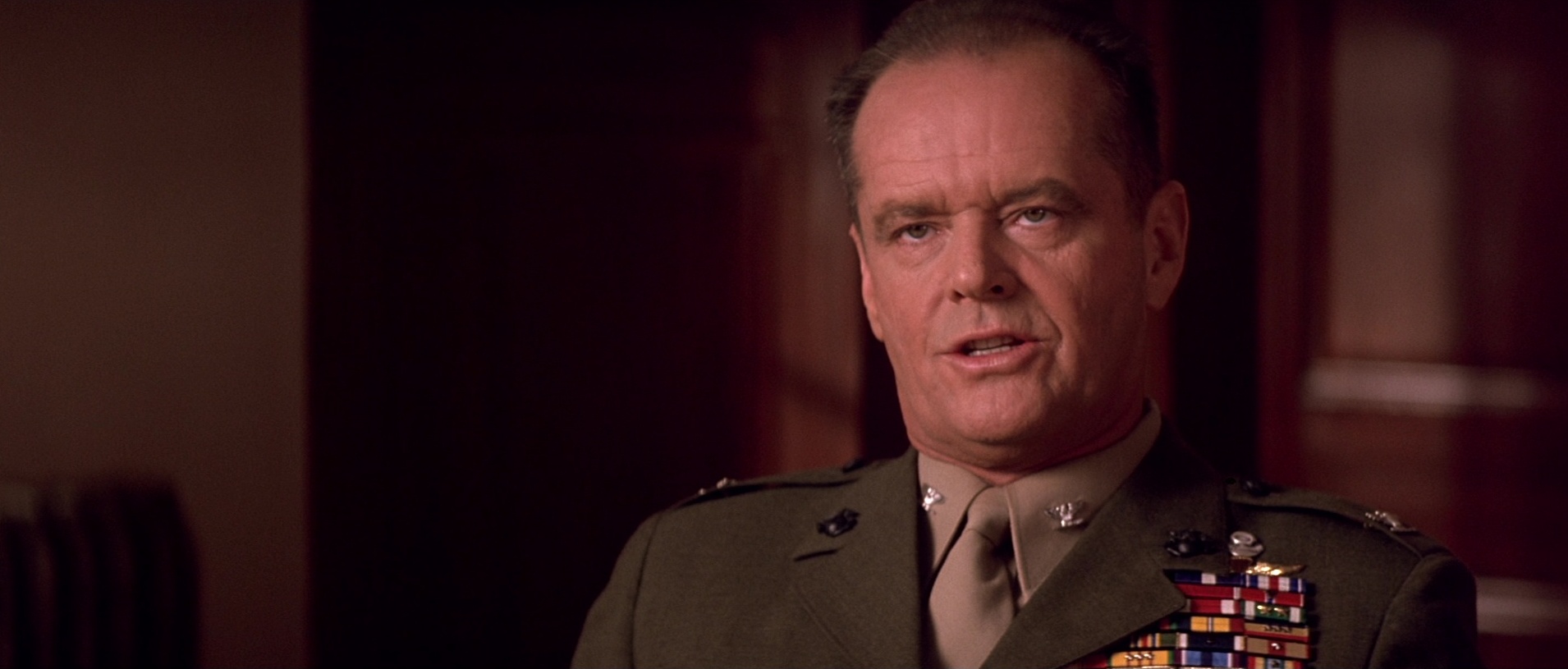 A Few Good Men (1992).
A Few Good Men (1992).
Maybe this is my problem with the optimism / pessimism language.
It doesn’t do justice to the gravity of the questions you confront as a leader.
It doesn’t do justice to the moment when you think, maybe it’s better for people if I don’t tell them the truth.
If I lie to them.
 The Dark Knight (2008).
The Dark Knight (2008).
Such a moment requires more than putting on an optimistic face.
A friend once said to me, I’m an optimist because people need to believe the world is getting better if they’re going to try at all, invest in the future, build new things, fight to make things better.
Maybe. But I hope that’s not a necessary condition.
By the same logic, you might argue that in order to prevent panic during a crisis, great leaders must lie to the public –
For the greater good, of course.
If that’s what it takes, then I don’t have the stomach for leadership.
The Noble Lie
In The Republic, Plato called it a noble lie.
The idea that it’s noble to propagate certain myths if they promote a well-ordered and stable city.
As much as I love Plato, I can’t get his back here.
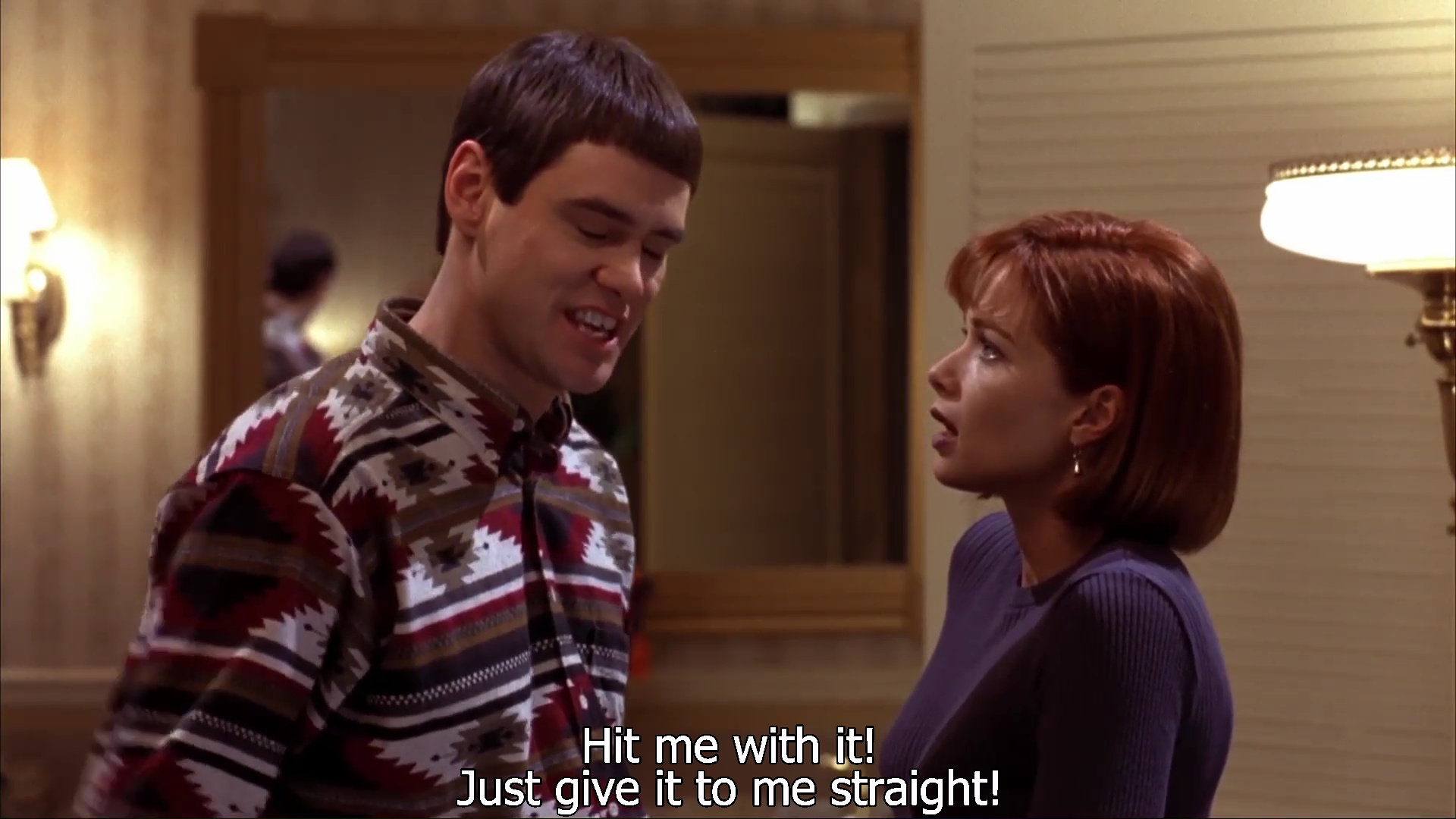 Dumb and Dumber (1994).
Dumb and Dumber (1994).
I want to be the kind of leader that I would respect.
That I would want to follow.
The kind of leader who respects the intelligence of the people they lead.
The kind of leader who has the courage to say, look the odds are stacked against us, but we have a plan and we’re going to try anyway.
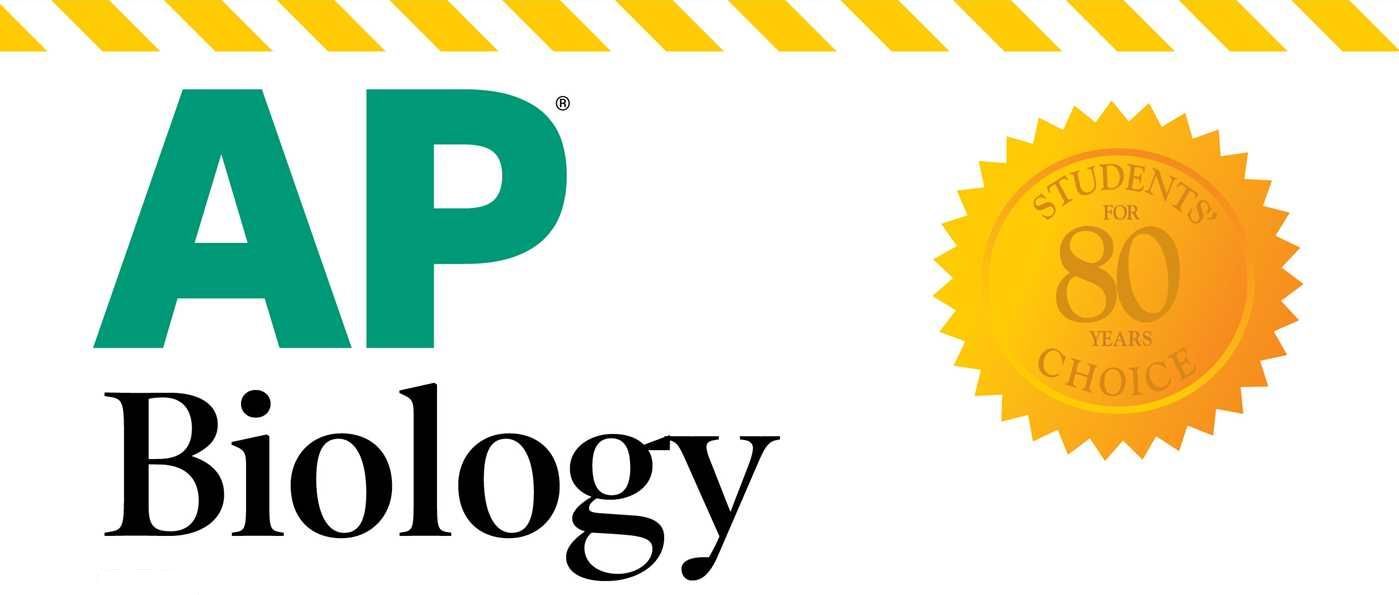 Cover of an AP Biology textbook.
Cover of an AP Biology textbook.
When I was in high school, I hated biology exams.
Learning how biology worked was fun, but the exams were all just wrote memorization.
My biology teacher – Ned Granville – had narcolepsy, suffered migraines, and coached the swim team.
I wasn’t on the swim team.
But I think about him often, because of the mantra he repeated to us before every biology exam.
Always do your best. No one can ask for more, nor should they expect less.
Always do your best. No one can ask for more, nor should they expect less.
Always – not just when you believe things will get better.
Nor should they expect less – this guy would never get elected to a public office…
But he is exactly the kind of leader I respect.
grim resoluteness
Some more straight talk I can respect.
It’s David Chapman this time – an MIT PhD in artificial intelligence – from an exchange on the now defunct letter.wiki site.
I saved a bit of this letter, which I’ll share here now, but the full thing is now lost in the tides of history:
“Systems no longer work!” we cried. But it was never the system that did the work. Systems work if we do the work needed to make them work. When we stopped believing in democracy, “it” stopped working, because we stopped working. Democracy didn’t work because it was cosmically Correct, but because it was workable for us, and we were willing to work on it.
The inseparable intertwingling of meaning and meaninglessness, pattern and nebulosity, is paradoxical and absurd. We all are, like “Arthur Fleck,” great mythological kings and also insignificant shreds of slime. For existentialism, this juxtaposition prompts anguish and despair, or at best grim resoluteness.
Grim resoluteness was the phrase that caught my eye.
To my ear, it sounds more honest than pragmatic optimism.
And while it’s not exactly firm ground to stand on either, it is – I think – a more resilient defense against despair and nihilism.
⥂ ❧ ⇲
What should those in power do both to fix what’s broken and spread optimism?
What should those in power do both to fix what’s broken and spread optimism?
And another question from the dinner.
Included here just in case the unbounded confidence of “those in power” was not clear already.
Note also who’s supposed to fix what’s broken…
 How the Grinch Stole Christmas! (1957).
How the Grinch Stole Christmas! (1957).
I’m not trying to be bleak.
Or difficult.
Really.
I’m just trying to explain how much these phrases like “The Perils of Pessimism” or “The Case for Optimism” bother me.
Thinking about what I’ve said so far gets me thinking that maybe I should second guess my position that its-not-just-semantics.
But then when I do second guess it, I really don’t think it is just semantics.
The Case for Optimism
Kevin Kelly is the founder of Wired Magazine and he’s on the board of directors of The Long Now Foundation (an organization I have a good bit of respect for).
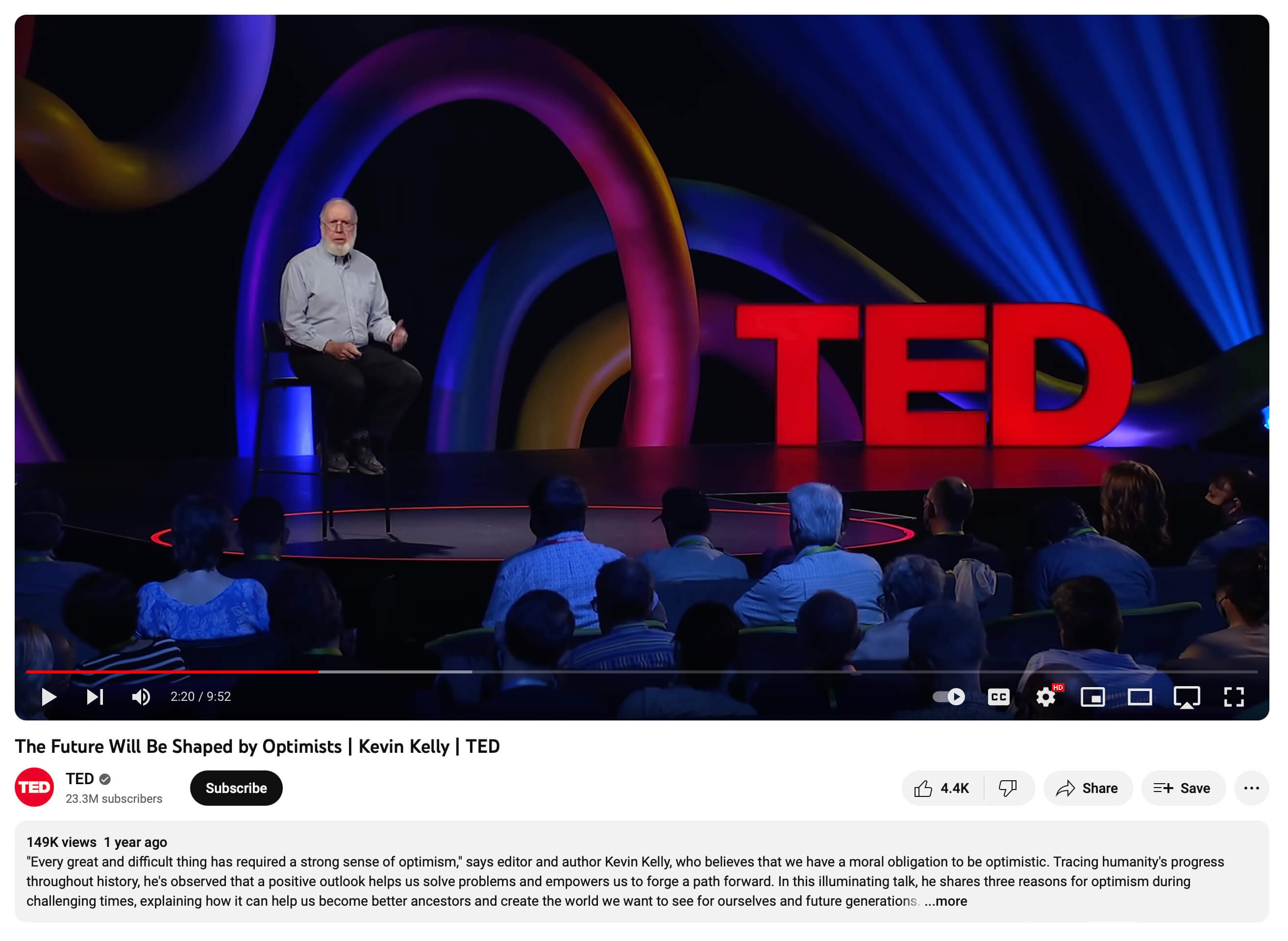 via TED.
via TED.
In 2021, he wrote up his case for optimism and delivered a TED Talk arguing why The Future Will Be Shaped by Optimists.
Despite my reservations about optimism – and about TED Talks – there’s a lot of sentiment in here I agree with.
Somehow he managed to squeeze a bit of nuance past the TED Talk censors.
From the paper:
To imagine is really the first step in creating anything.
To imagine is really the first step in creating anything.
Agree.
Therefore an essential chore for making a future we want to live in, is to imagine what it is like and how we get there.
Agree.
That plausible path is a form of optimism.
What? Why is this optimism?
Believing it is possible makes it more likely to happen.
YES! Agree.
I love a lot of this, but it’s not clear to me it’s optimism we’re talking about.
It sounds more like imagination.
I love imagination.
It’s a superpower.
Moving on.
Civilization thrives on trust.
Civilization thrives on trust.
This is one of the better arguments in his paper.
At a very basic level, you might think about civilization as a way to coordinate cooperation among strangers, at scale.
This works better when you trust the strangers – when you believe that most people are not going to hurt you or try to cheat.
This actually sounds pretty close to the type of thing I think about when I think about optimism, and you can see how you need to believe it before you put it into practice.
I would call it trust, but I think you could call it optimism about other people, about human nature – and about other people’s attitude toward society.
One thing you need to believe for this to work is that people don’t feel they have been screwed by society – if they did, they might not be willing to play by the rules.
So, point conceded, Kevin Kelly.
The Case for Trying
I almost wish he had just called this The Case for Trying.
Or The Case for Caring.
And left out all mention of optimism.
Progress has happened before, so it will happen again.
Almost.
Because there’s also some pretty flimsy stuff here, too.
One of my favorites – that I hear all the time – is a historical argument that runs like this:
“[L]ifespans, security, well-being, and opportunities for the average person have increased” over the past several centuries; so it’s probable this will continue to happen going forward.
Kelly concedes that:
There is no guarantee that this long run of progress will continue forward. It could happen that after 10 centuries it suddenly stops.
But then he concludes:
While that sudden stop is possible, it is statistically more probable that it will continue, at least for several more decades.
He’s basically saying, we’ve got a good thing going, so it’s likely to keep going.
I can see you might argue that by looking at a certain portion of history.
But I can also see how if you look at other portions of history, you might conclude all good things must come to an end.
This is getting speculative.
I’m sorry.
This is getting speculative.
For historical arguments to be convincing one way or the other, I think you need far support than you can give in a TED Talk or a talk about a TED Talk.
My point is, I don’t want whether or not you try to make things better hinging on whether or not you think things will keep getting better.
When things get bleak, some things to remember.
Because things will get bleak.
And if they don’t, great, you can write this off as a waste of an hour of your time.
But I suspect that some day, things will get bleak.
And when they do, when you would bet everything you own that things are getting worse, here are some things to remember that maybe will help you put your effort into trying to make things go the other way.
Oh, and also – always bet on yourself.
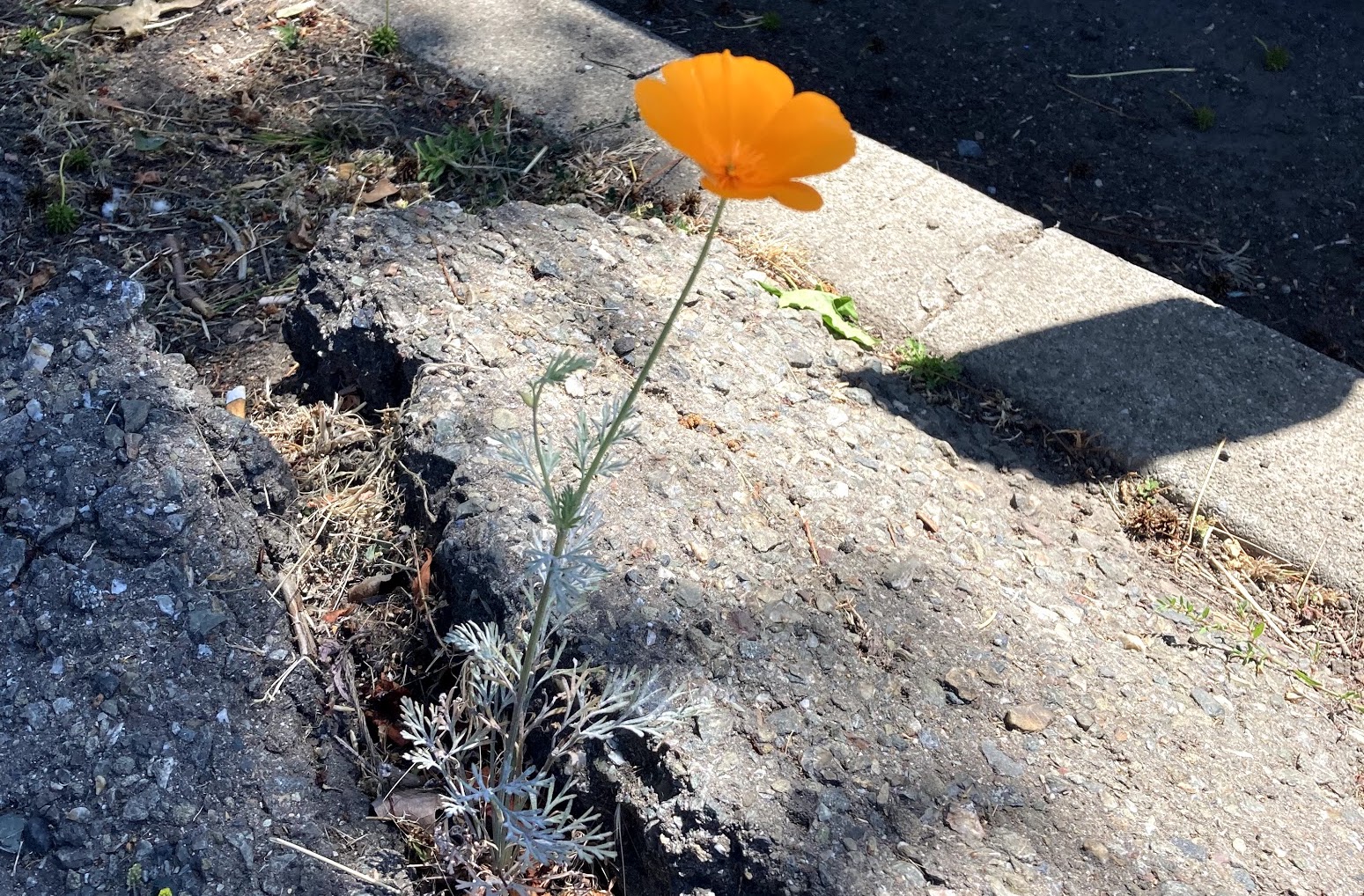 Life finds a way. West Oakland, CA.
Life finds a way. West Oakland, CA.
Looking forward can be scary, but sometimes looking back, you might remember something good.
Something kind someone said to you.
Something generous someone did for you, when they didn’t have to.
The way the sun felt on a beautiful day.
How excited you were the moment you learned something profound.
These moments are fleeting, even when things are going good.
Reflecting on them with gratitude can be a powerful motivator – even if you think things are getting worse, how badly do you want to make possible a few moments like these for even one other person?
things that feel ok
Something I did to help me remember this when things look bleak – when the world is overwhelming, and everywhere I look I see things going in a direction that gets me down – is I made a list of things that feel ok.
It was Nam’s idea, I think.
A good idea. I’d recommend it.
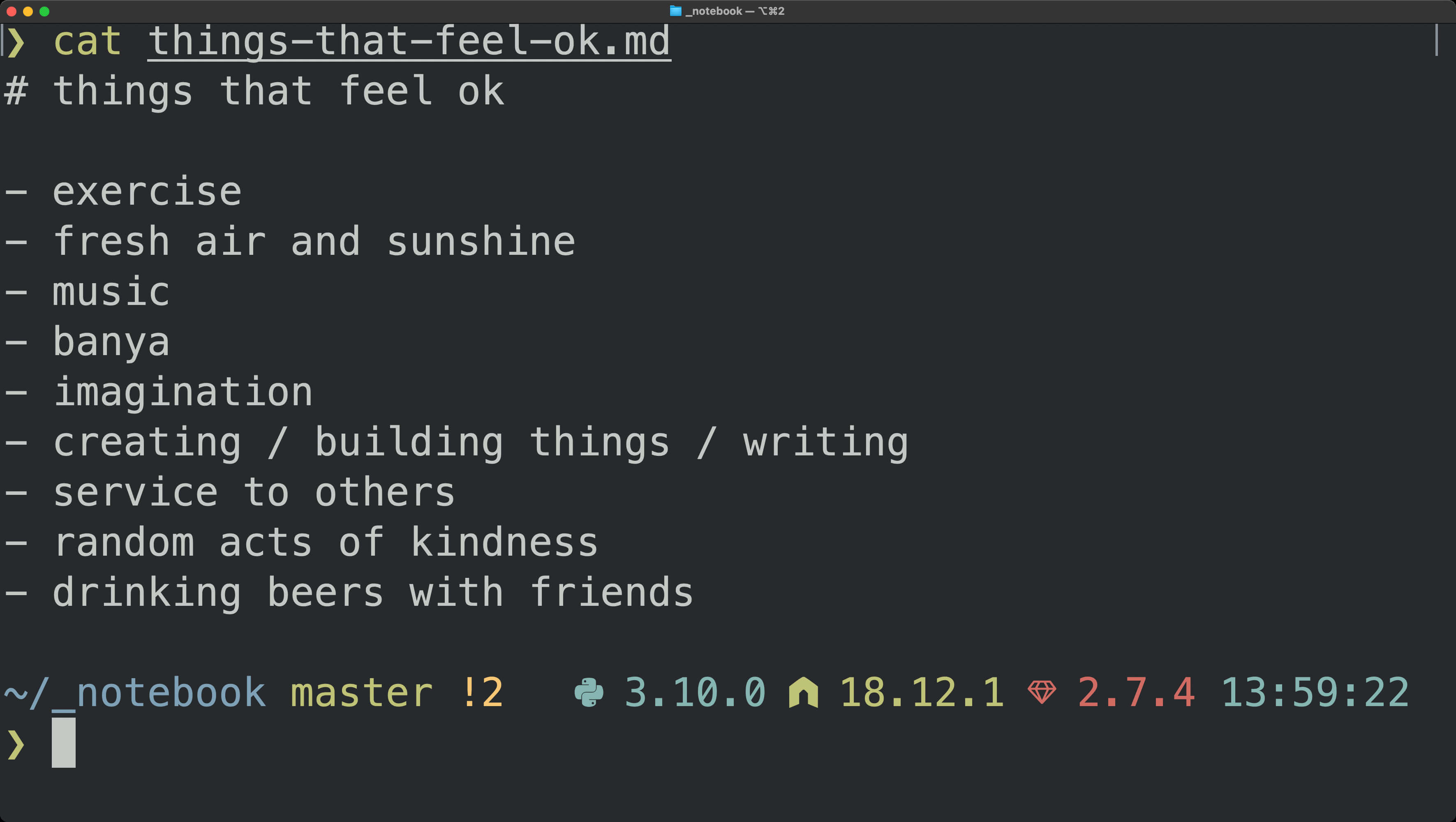 catting things-that-feel-ok.md
catting things-that-feel-ok.md
Some of the things on my list.
Exercise. I think I’d go crazy without it.
Music. Perhaps THE redeeming contribution of humanity to the universe.
Random acts of kindness.
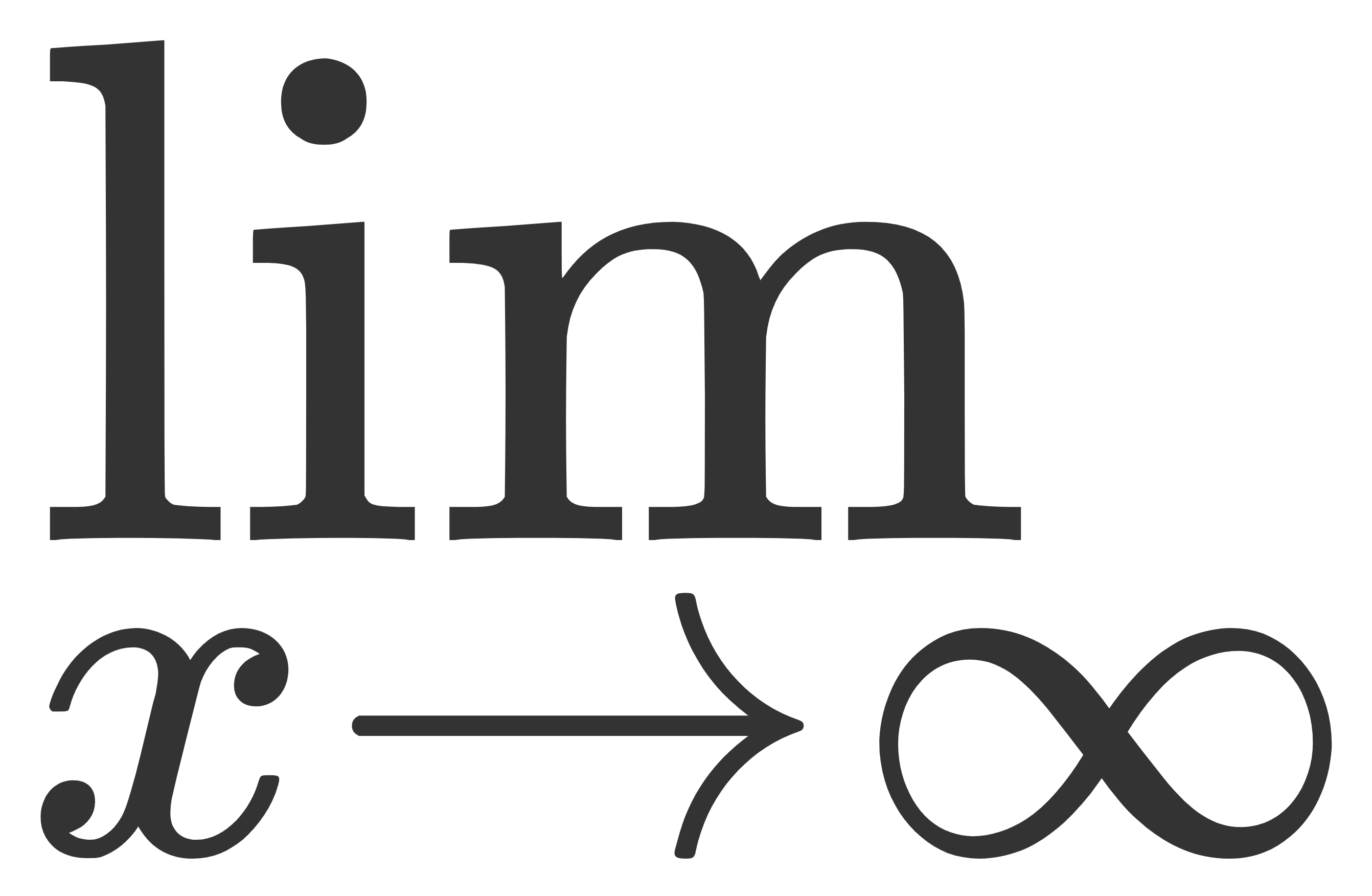 Limit as x approaches infinity.
Limit as x approaches infinity.
Maybe it’s because I studied philosophy when I was in school, but my brain always tends to go to limit cases.
Reductios.
The limit case that gives me greatest comfort is one detailed by Viktor Frankl about his time spent in Auschwitz.
He observes that most of us find meaning in one of two ways:
An active life serves the purpose of giving man the opportunity to realize values in creative work…
or
a passive life of enjoyment affords him the opportunity to obtain fulfillment in experiencing beauty, art, or nature.
The concentration camp strips you of both of these opportunities for meaning –
And it leads Frankl to a profound insight:
But there is also purpose in that life which is almost barren of both creation and enjoyment and which admits of but one possibility of high moral behavior: namely, in man’s attitude to his existence, an existence restricted by external forces….
The way in which a man accepts his fate and all the suffering it entails… gives him ample opportunity… to add a deeper meaning to his life. It may remain brave, dignified and unselfish. Or in the bitter fight for self-preservation he may forget his human dignity and become no more than an animal….
We who lived in concentration camps can remember the men who walked through the huts comforting others, giving away their last piece of bread. They may have been few in number, but they offer sufficient proof that everything can be taken from a man but one thing: the last of the human freedoms–to choose one’s attitude in any given set of circumstances, to choose one’s own way.
![]() Viktor Frankl.
Viktor Frankl.
Everything can be taken from you in this life, except your freedom to choose your attitude in any given set of circumstances.
I’m not convinced Frankl would call this attitude optimism.
For him, the choice is not about whether or not you believe things are getting better or getting worse.
For him, the choice is about whether you remain dignified, unselfish, and not treat your fellow creatures as beneath you.
For him, it’s about dignity.
And, I’m with Frankl.
Thank You
⥂ ❧ ⇲
Originally delivered as a talk for the MIT DEAL program in Aug 2023.
Coda
After this talk, we did q&a, and I’ve been mulling over some of these questions since the talk.
Q: Do you think you would be a happier person if you had NOT studied philosophy?
And I just didn’t know how to respond. I talking about staving off nihilism and despair might get you thinking happiness is a concern, but to me it’s about dignity and integrity.
Q: Do you consider yourself more of a HOPEFUL romantic or a HOPELESS romantic?
I’m not sure, but you definitely have me pegged as a romantic (and romanticism is probably not a recipe for happiness).
Q: Are you ok?
Yes, I’m ok.
References
- Man’s Search for Meaning by Viktor Frankl
- meaningness by David Chapman
- MIT DEAL
- The Case for Optimism and The Future Will be Shaped by Optimists by Kevin Kelly
- The Republic by Plato
- Candide by Voltaire
- Theodicy by Leibniz
- The Evolution of Trust by Nicky Case